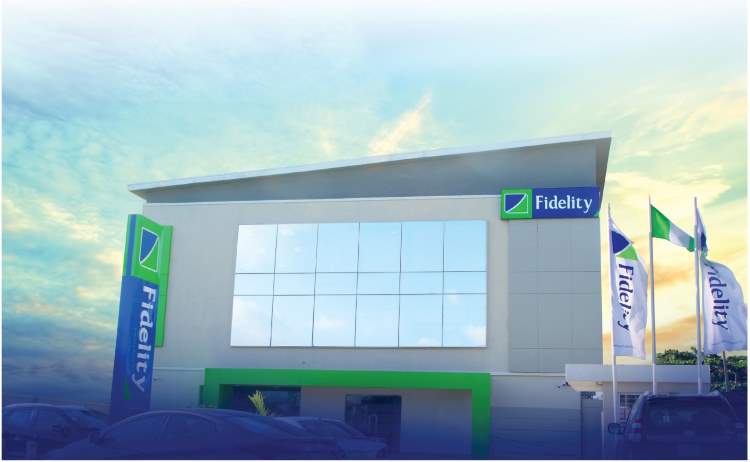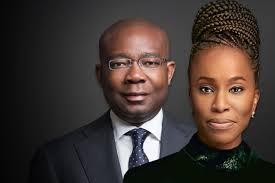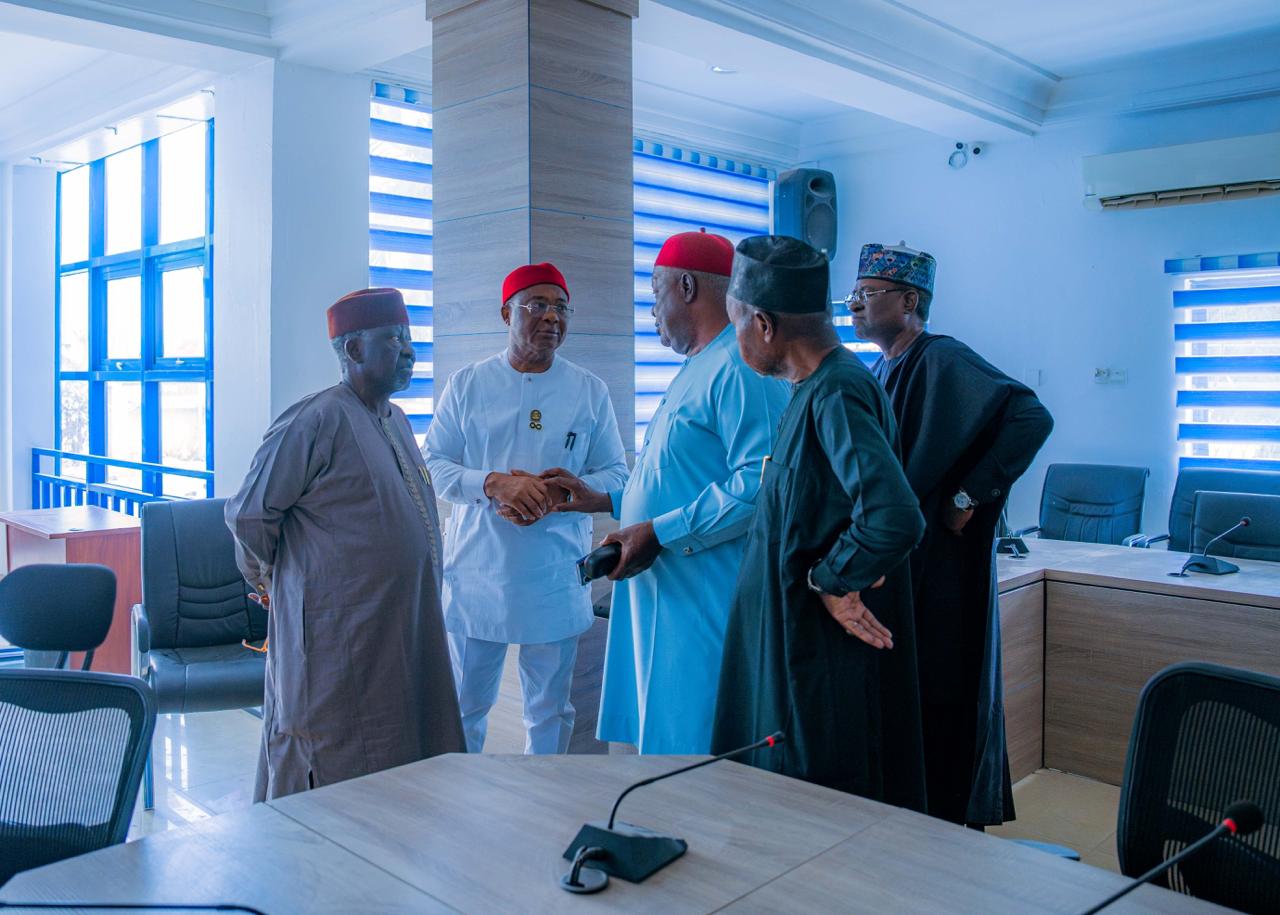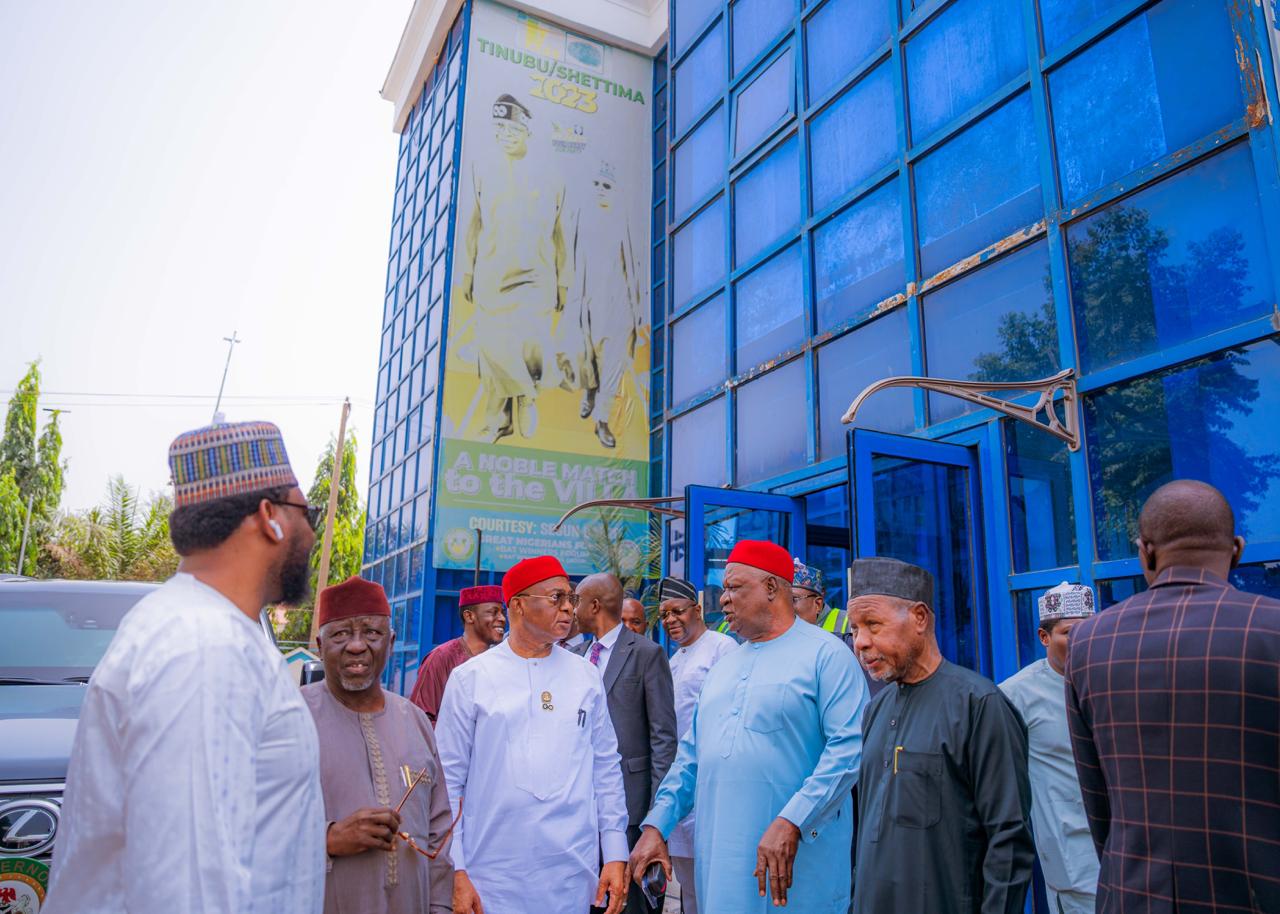Business
NGX rates Fidelity Bank highest on corporate governance

*NGX rates Fidelity Bank highest on corporate governance
Fidelity Bank Plc complies with the highest corporate governance standards as the leading commercial bank adheres promptly to all full disclosure requirements and global best practices.
Fidelity Bank is awarded CG+, the highest rank under the Corporate Governance Rating System (CGRS), which screens quoted companies against prescribed best practices and standards.
A review of the latest compliance report showed that Fidelity Bank sustains its highest-ranking rating of CG+, with shareholders and market pundits commending the high corporate standards of the bank.
Head, Listings Regulation Department, NGX Regulation (NGXRegco), Mr. Godstime Iwenekhai, explained that the CGRS was designed to strengthen the governance structures of listed companies and provide a valid basis for discerning investors to differentiate between listed companies on the basis of their compliance with acceptable standards of corporate governance.
“In our view, corporate governance promotes ethical business practices, transparency and fair competition,” Iwenekhai said.
He pointed out that the special character combination “CG+” underlined compliance with best practices and highest corporate governance standards, which entitle the rated companies to special privileges at the stock market.
Corporate governance compliance at the stock market includes prompt submission of detailed operational results from period to period as required by the market rules, full disclosures of all material and regulated information and accurate rendition of reports and accounts.
Also, compliance includes ensuring that the company’s shares are not encumbered in a way that impinges on free float or number of shares available to the general investing public for efficient price discovery, compliance with all investor-protection safeguards in communication with shareholders and organizing statutory meetings as required among others.
The Nigerian Exchange (NGX) noted that the compliance tracker was aimed at maintaining market integrity and protecting the investors, noting that listed companies are required to adhere to high disclosure standards.
“Financial information which is periodic disclosure and on-going material events disclosure should be released to NGX in a timely manner to enable it efficiently perform its function of maintaining an orderly market,” NGX stated, referencing some of the criteria for its corporate governance rating.
Market experts and shareholders agreed that corporate governance compliance is a major factor in deciding on investing in a public and the safety of such investment.
Managing Director, Arthur Steven Asset Management, Mr. Olatunde Amolegbe, said corporate governance compliance rating is “extremely important” as it indicates to the investing public the quality of compliance of a company to listing requirements.
“As you know, stock prices are driven primarily by available information and the NGX has a minimum level of disclosure expected of quoted companies. This disclosure helps the public make qualitative decisions as to the state or performance of the companies they are seeking to invest in. These markers are therefore the initial indicators as to whether the companies are meeting their disclosures and other regulatory obligations or not,” Amolegbe, a former president of Chartered Institute of Stockbrokers (CIS), said.
Managing Director, APT Securities & Funds, Mallam Garba Kurfi, said the corporate governance rating “shows the extent companies are in compliance with corporate governance”.
“High rating means very good in doing the right thing timely while low rating discourages foreign investors from investing in such companies,” Kurfi, a leading market operator and member of the board of Securities and Exchange Commission (SEC), said.
Managing Director, HighCap Securities, Mr David Adonri, noted that “CG+ means excellent corporate governance rating”.
“When a company is organised and upholds good corporate governance, the benefit to stakeholders is maximized,” Adonri said.
Investors said its high corporate governance was one of the compelling reasons they chose to invest in Fidelity Bank.
President, Association for the Advancement of Rights of Nigerian Shareholders (AARNS), Dr. Faruk Umar said Fidelity Bank has a very good corporate governance structure that reassures investors of the safety of their investments.
According to him, while the bank has a good succession plan, the calibre of the independent non-executive directors on the board gives shareholders strong confidence of the kind of board oversight they will be expecting.
National Coordinator, Independent Shareholders Association of Nigeria (ISAN), Mr. Moses Igbrude, said Fidelity Bank’s impressive performance over the years had been built on good corporate governance.
“My appeal to the board is to continue to imbibe good corporate governance in order to sustain this growth,” Igbrude said.
National Coordinator, Pragmatic Shareholders Association of Nigeria, Mrs. Bisi Bakare, said Fidelity Bank has created a “very excellent impression” in the minds of shareholders.
According to her, the bank has continually showcased exemplary leadership with continuous impressive results, with successive growths over the past five years.
“Fidelity Bank is a very good bank that shareholders are very happy with their investments and we have never regretted buying into Fidelity Bank,” Bakare said.
National Coordinator, Progressive Shareholders Association of Nigeria, Mr. Boniface Okezie said good corporate governance was the cornerstone of Fidelity Bank’s sustained growth and impressive returns over the years.
“Fidelity Bank remains one of the best stocks that investors should look forward to investing in for better returns. I’m very optimistic about the bank’s healthy strong assets. With its good corporate governance and excellent customers’ service, there is every reason to hope for a more promising future,” Okezie said.
The NGX tags defaulting companies for poor corporate governance and also applies various monetary and non-monetary sanctions, including fines ranging between N100,000 to N100 million, partial or full suspension of trading, naming and shaming with a red alert tag and compulsory delisting in extreme cases.
Business
Aig-Imoukhuede Foundation opens applications for 6th Cohort Programme

Aig-Imoukhuede Foundation opens applications for 6th Cohort Programme
The Aig-Imoukhuede Foundation is pleased to announce that applications are now open for the sixth cohort of its transformative AIG Public Leaders Programme (AIG PLP).
This flagship six-month executive education initiative, delivered by the University of Oxford’s Blavatnik School of Government, is designed to empower high-potential public sector leaders across Africa with the tools, networks, and strategic insight required to deliver meaningful reform across African public institutions.
Applications are now open to qualified public servants from all English-speaking African countries and will close on Sunday, April 12, 2026. The programme commences in October 2026.
Since its inception in 2021, the AIG PLP has built a formidable reputation for creating tangible impact.
Alumni from the programme have gone on to design and implement more than 230 reform projects within their ministries, departments, and agencies across Africa.
An impact survey revealed that 62% of alumni have earned promotions or assumed expanded leadership roles post-training, demonstrating the programme’s direct effect on career advancement and institutional influence.
“Across Africa, the complexity of public sector challenges demands more than good intentions. It requires reformers who understand systems, can navigate institutional realities, and are equipped to implement sustainable change.
The AIG PLP is designed to meet this need,” said Ofovwe Aig-Imoukhuede, Executive Vice-Chair of the Aig-Imoukhuede Foundation.
As part of the programme, a PLP alumna, Titilola Vivour-Adeniyi, Executive Secretary of Lagos State DSVA, launched a secure self-reporting tool that allows survivors of domestic and sexual abuse safely document incidents and preserve evidence.
Survivors are already accessing support, and the tool ensures that crucial proof is protected until justice can be sought. This is one of over 230 impactful reform projects being implemented across sectors as diverse as healthcare, finance, agriculture, and education.
We are seeing proof every day that investing in the capacity and leadership potential of people, delivers the kind of transformation that policy alone cannot achieve.”
The AIG PLP is a blended learning experience that combines online sessions with an intensive residential module.
It is offered at no cost to selected participants, with the Foundation covering all costs of the programme including accommodation and feeding during the residential weeks.
Participants gain direct access to world-class faculty from the University of Oxford, and learn to tackle core public sector challenges such as: Negotiating in the public interest. Harnessing digital technology for governance.
Strengthening public organisations.
Upholding integrity in public life.
The curriculum culminates in a capstone reform project, where participants apply their new skills to a real-world challenge within their institution.
This practical component ensures that learning translates directly into actionable solutions.
Interested candidates are encouraged to apply early. For more details on the application process and to apply, please visit the Aig-Imoukhuede Foundation website.
Business
Renewed Hope Ambassadors Inspect RHA Secretariat

Renewed Hope Ambassadors Inspect RHA Secretariat
Renewed Hope Ambassadors, led by its Director-General and the Governor of Imo State, Hope Uzodinma, alongside Zonal Coordinators (NW, NC, SE), the Media & Publicity Directorate, and other key stakeholders, inspected the RHA Secretariat two days after President Bola Tinubu unveiled the Renewed Hope Ambassadors grassroots engagement drive in Abuja.
Business
Harmony Gardens’ Ibeju-Lekki Portfolio Crosses $1bn

Harmony Gardens’ Ibeju-Lekki Portfolio Crosses $1bn
Harmony Garden & Estate Development Limited has expanded its development activities across Ibeju-Lekki, pushing the projected long-term value of its estate portfolio beyond $1 billion.
Led by Chief Executive Officer Hon. Dr. Audullahi Saheed Mosadoluwa, popularly know Saheed Ibile, the company is developing seven estates within the Lekki–Ibeju corridor. Details available on Harmony Garden & Estate Development show a portfolio spanning land assets and ongoing residential construction across key growth locations.
A major component is Lekki Aviation Town, where urban living meets neighborhood charm, located near the proposed Lekki International Airport and valued internally at over $250 million. The development forms part of the company’s broader phased expansion strategy within the axis.
Other estates in the corridor tagged as the “Citadel of Joy” (Ogba-idunnu) include Granville Estate, Majestic Bay Estate, The Parliament Phase I & II, and Harmony Casa Phase I & II.
With multiple projects active, the rollout of the Ibile Traditional Mortgage System, and structured expansion underway, Harmony Garden & Estate Development Ltd continues to deepen its presence within the fast-growing Ibeju-Lekki real estate market.
-

 celebrity radar - gossips7 months ago
celebrity radar - gossips7 months agoWhy Babangida’s Hilltop Home Became Nigeria’s Political “Mecca”
-

 society5 months ago
society5 months agoReligion: Africa’s Oldest Weapon of Enslavement and the Forgotten Truth
-

 society7 months ago
society7 months agoPower is a Loan, Not a Possession: The Sacred Duty of Planting People
-

 news7 months ago
news7 months agoTHE APPOINTMENT OF WASIU AYINDE BY THE FEDERAL GOVERNMENT AS AN AMBASSADOR SOUNDS EMBARRASSING















